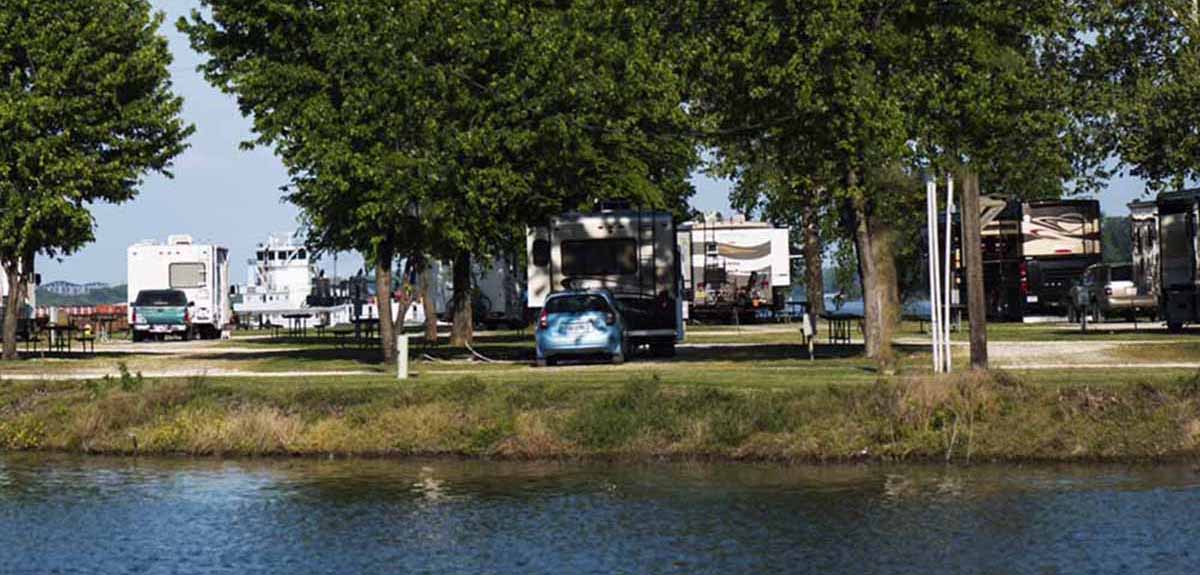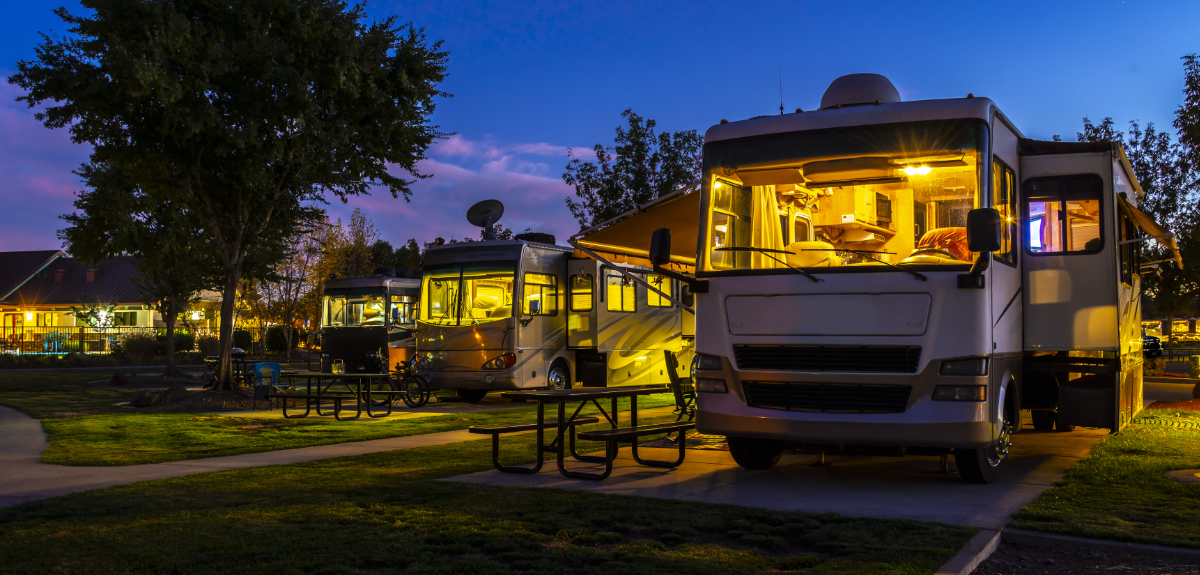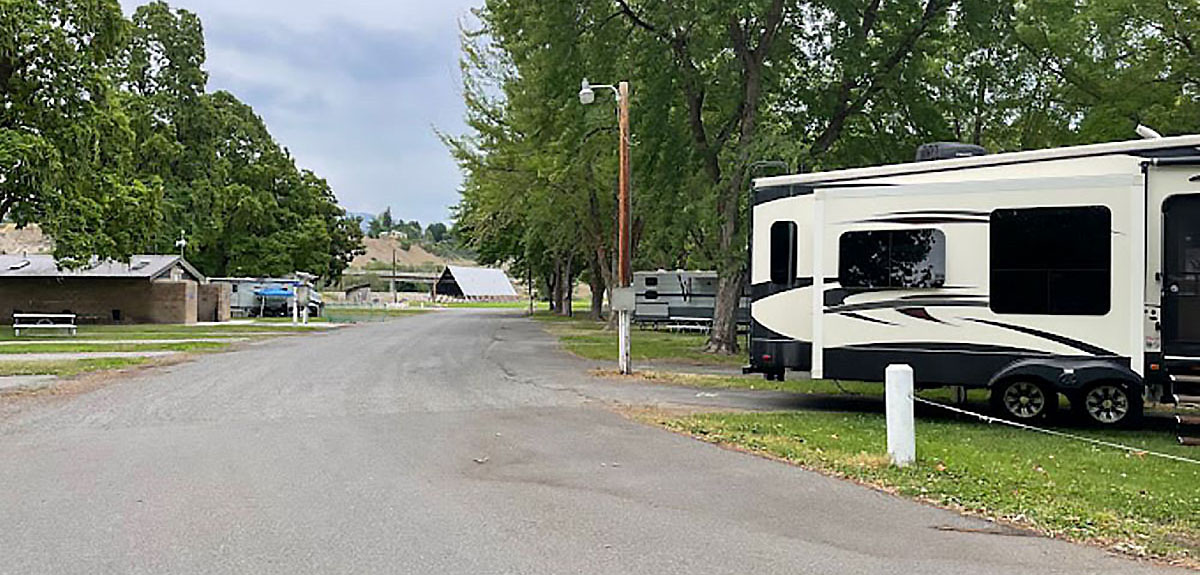Helpful Tips for More Sustainable RV Camping
Go Easier on the Planet with These Suggestions for a More Eco-Friendly Approach to RVing
Image Caption: Photo Credit: Sushaaa/Getty
There is a common misconception amongst the general public that RVing isn’t an eco-friendly way to go camping. This mainly stems from the idea that motorhomes and tow vehicles aren’t the most fuel-efficient modes of transportation. While that may be the case, traveling in an RV tends to have a smaller carbon footprint than flying, which often involves renting a car and staying in hotels.
On top of that, RVers are an active bunch who love the outdoors. Over the years, we’ve adapted our approach to camping to be more eco-friendly by reducing waste and our environmental impact. As a whole, our motorhomes and travel trailers are much more efficient than they were in the past, allowing us to camp in ways that weren’t always possible, even just a decade ago.
That said, there are always ways that we can take a more sustainable approach to our travels. With that in mind, here are a few tips for making your camping trips a bit easier on the environment.
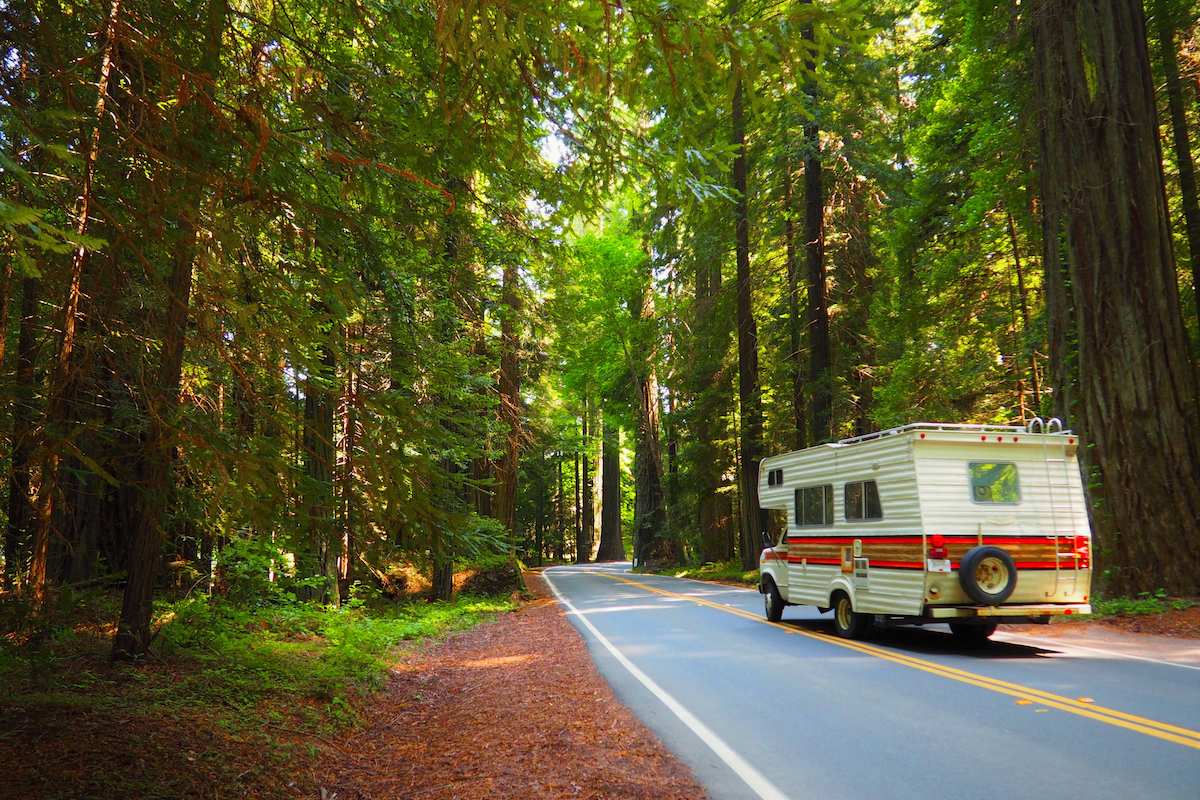
Photo Credit: Jessica Harrison/Getty
Improve Fuel Efficiency
RVs may not be known for their fuel efficiency, but there are ways to ensure your vehicle gets the best gas mileage possible. For example, make sure your tires are properly inflated and perform regular maintenance on the engine. By replacing oil and air filters and cleaning the fuel injectors, your vehicle will run smoother and burn less fuel. This provides the added benefit of saving you some money, too.
Other tips for improving fuel efficiency include removing unnecessary items to lessen your cargo weight and driving the speed limit. Using an RV GPS or smartphone to navigate can help you find the fastest, most efficient route while avoiding traffic, too. And when you do reach the campground, riding an e-bike is a great way to limit the need for driving your larger vehicle.
Travel Shorter Distances
Another way to lessen your impact on the environment is to take shorter trips and stay in campgrounds closer to home. This won’t improve your gas mileage, but it will reduce the amount of fuel that you burn while driving your RV. It is also much less costly to drive a hundred miles and stay in a luxury RV resort than to travel thousands of miles on a cross-country odyssey.
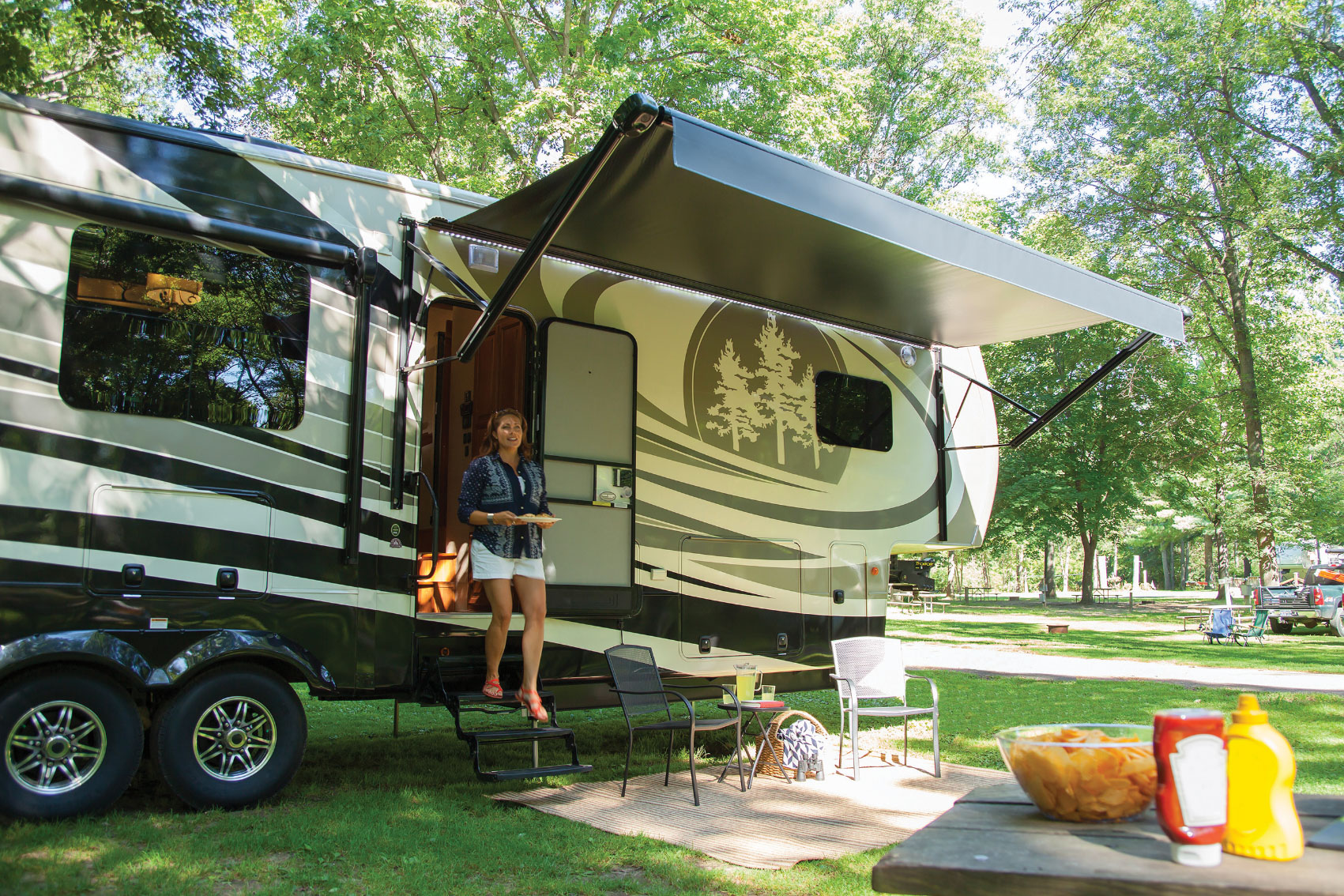
Image: Courtesy of Lippert
Be More Energy Efficient
In addition to maintaining or improving your RV’s fuel efficiency, there are ways to reduce the amount of electricity it consumes. For example, switching to LED bulbs will lower the amount of power consumed. Those types of bulbs don’t burn quite as hot as incandescent lights, either, which can keep the interior temperature cooler, reducing the load on the vehicle’s air conditioning unit.
If your RV’s stove, microwave, refrigerator, or other appliances are on the older side, chances are they aren’t as energy efficient as they could be. When it comes time to replace those items, look for alternatives that require less power. Similarly, you can swap out the faucets and shower heads for newer options that use less water. That is another way to lessen your impact on the environment.
Add Solar Panels
Most new RVs either come with solar panels already installed or have the option to add them, should you choose. This allows your RV to gather clean, renewable energy directly from the sun that can be used to run appliances and other electrical systems. They can replenish the vehicle’s house batteries, allowing you to camp sustainably at RV resorts or while boondocking off the grid.
Solar panels can also lower your reliance on a gas-powered generator to produce electricity. Because they use fossil fuels, generators can make a lot of noise and release harmful emissions into the atmosphere. By switching to a battery-based electrical system, your time at the campground will be more quiet and peaceful, too.

Image Courtesy of welcomia/Getty
Reduce Waste at the Campground
Take an inventory of the things you use in your RV and look for ways to reduce the amount of waste you generate at the campground. For instance, stock your cupboards with reusable dishes, drinkware, and utensils rather than paper plates, plastic cups, and cutlery. Yes, this will require you to actually wash those items, potentially using more water in the process. But that will have less of an impact on the environment than generating more trash that could be in a landfill for decades to come.
Other options include using cloth napkins instead of disposable ones and bringing reusable bags for those trips to the grocery store. Don’t forget to separate your trash and recyclables, just as you would at home, and reuse items like plastic containers or glass jars whenever possible. The fewer things you’re throwing into the trash, the better.
Ditch the Single-Use Plastic Water Bottles
One of the easiest ways to make your camping trips—or other aspects of your life—more eco-friendly is doing away with single-use plastic water bottles. Plastics like the ones used in those bottles are a blight on the environment, taking up to 450 years to fully decompose. By switching to a reusable water bottle, you’re reducing waste and ensuring that less plastic is finding its way into our oceans and rivers.

Photo Credit: welcomia/Getty
Choose Your Campsite Wisely
Believe it or not, the campsite you choose can have an impact on your carbon footprint. For instance, by parking in the shade—or near a body of water—the temperature of the air surrounding the vehicle will be lower, reducing the need to run the A/C unit as frequently. On the other hand, choosing a site that offers plenty of protection from the wind can prove valuable in the winter. When parked out of the wind, your RV will stay warmer, allowing the furnace to run less often and more efficiently.
Use Non-Toxic Cleaning Supplies
The chemicals that go into the cleaning supplies we use at home and in our RVs are often quite toxic. They can harm the environment, with hazardous materials finding their way into the soil and groundwater. By switching to non-toxic, biodegradable options, you can still manage to keep your vehicle clean without the potentially dangerous consequences. Also, avoid using paper towels or disposable disinfectant wipes in favor of cloth rags that can be washed and used over again.
And while we’re on the subject of harmful chemicals, you can also use non-toxic options for cleaning your RV’s toilet and black water tank. This will further reduce the chances of dangerous materials seeping into the environment and make your camping trips even more eco-friendly. Look for enzyme-based tank cleaners the next time you’re shopping.

Photo Credit: Bryanna Royal
Follow the Principles of Leave No Trace
The Leave No Trace (LNT) organization has provided guiding principles for eco-friendly outdoor recreation for years, most of which apply to RV camping. For instance, the LNT guidelines advise us to always properly dispose of all waste and leave anything you find behind. In other words, take everything that you bring with you and leave the neutral habitat as you found it.
The other principles include minimizing the impact of a campfire, respecting the wildlife, and being considerate of others. By adhering to these rules, we can ensure that the campsite remains a viable place to park our rigs and enjoy some quality time in the outdoors. And perhaps more importantly, it ensures that those who come to that place after us can have those same immersive experiences.
These are just a few ideas for how we can all camp a little smarter and cleaner. Keep these suggestions in mind when planning your next trip, and remember that future generations of RVers want the same opportunities that we’ve had to enjoy this active lifestyle.

Kraig Becker is a writer in the RV, outdoors, and adventure travel space. Over the course of his career he has contributed to such outlets as Popular Mechanics, Outside Online, Business Insider, TripSavvy, Digital Trends, GearJunkie, The Adventure Blog, and countless others. And avid runner and cyclist, he enjoys camping, hiking, mountain biking, kayaking, and just about any other outdoor activity. His travels have taken him to seven continents and on many amazing adventures.


